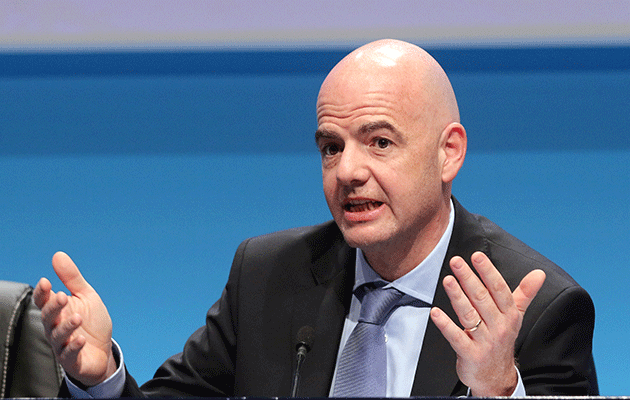The World Cup finals will be expanded to 48 teams from 2026, after the governing FIFA Council “unanimously” approved the proposal this morning. Ratification by Congress in Bahrain in May is a formality.
The aggrandisement of international events has become a fact of sporting life, a victory for pragmatists over purists in the race to capitalise on life in the current financial and commercial sunshine.
FIFA Council was not at full capacity: English vice-president David Gill was absent through a previous commitment while Asia was at half-strength through the AFC’s own silly political fault. But the six regional confederations had all approved the concept in advance among themselves anyway.
Opponents, arguing for maintaining quality at the expense of quantity, were thin on the ground. Germany favoured sticking at the current 32 but was in a tiny minority.
The attractions of expansion are obvious: more nations can enjoy the World Cup spotlight plus the financial and popularity benefits while the extra sums generated will increase FIFA’s worldwide development budget by a conservatively estimated $1.1bn.
Four options had been proposed but the methodology approved was for 16 groups of three teams with the top two advancing to a knockout stage.
Consideration must yet to give to the use of penalty shootouts to prevent any match ending in a draw and thus forestalling ‘results of mutual convenience’.
The number of tournament matches will rise to 80, from 64. Every team at the finals would thus have a minimum of two matches but no-one would have more than the current maximum of seven games, thus erasing European Club Association concerns about extra pressure on players.
Matches should also be staged, when possible, at times which suit the major markets to maximise commercial opportunities.
The overall scenario is exactly what Gianni Infantino proposed in his manifesto ahead of his election as FIFA president last February: more World Cup slots and more development cash. Hence a by-product of approvals by FIFA Council and Congress will make his re-election in 2019 a nailed-on certainty.
Infantino has no reservations about tournament expansion. He was at the forefront, as UEFA general secretary, of stretching the European Championship last year from 16 to 24 finalists. Popular positives were a reinvigorated qualifying competition plus the finals ‘romances’ of minnows such as Iceland and Wales.
Quality of football was down, but that has been the story of every World Cup expansion since its own initial leap from 16 to 24 teams in Spain in 1982.
The days are far distant when national team football represented the best the game had to offer in terms of technical quality; this argument has long since been lost.
Nowadays the world’s best football is to be seen annually in the knockout stages of the Champions League: the World Cup cannot compete. Indeed, the standard of national team football has been fading ever since the brilliant pinnacles achieved by Holland and West Germany in the early 1970s then perhaps France in the mid-to-late 1980s.
As for 2026, the United States is runaway favourite to be host on its own or in partnership with Canada and/or Mexico. Coincidentally, US broadcaster Fox Sports is sitting pretty already after having been handed a controversial deal extension to 2026 by Sepp Blatter’s disgraced FIFA regime.
At the time, in 2015, the deal was seen as a sop to Fox not to cause trouble over the switching of the Qatar 2022 finals to a winter date (For the record, FIFA’s projection of TV income for a 48-team finals is $3.6bn compared with $3.1bn for Russia 2018).
Another fall-out issue concerns the World Cup qualifying competition in the Americas. South America has been projected six or seven slots in a 48-team finals which would render the current 10-team, single-group qualifying format nonsensical.
CONMEBOL currently has 4.5 places at the World Cup while CONCACAF, with 35 member associations, has 3.5.
One proposal already under discussion is merging the CONMEBOL competition with the central/north American [CONCACAF] qualifiers. The trick then would be in maintaining meaningful competition while still guaranteeing each confederation its allotted slots at the finals.






